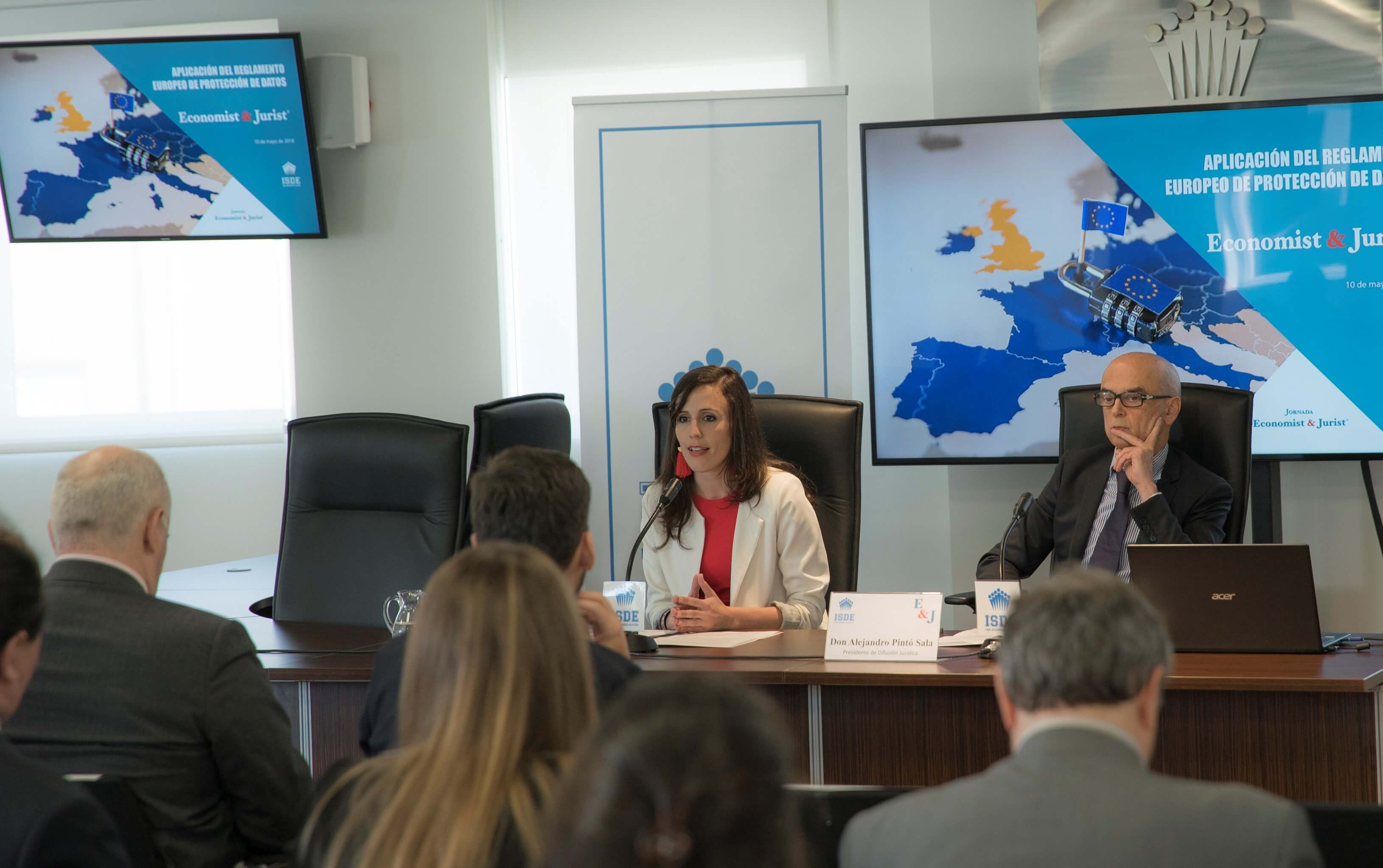
The new General Regulation on Data Protection will come into force next May the 25th, with innumerable changes in our legal framework
To deal with all the changes and developments that come with the European Data Protection Regulation as of May the 25th, Economist & Jurist gathered experts on the subject, at the new headquarters of ISDE in Madrid.
The event was attended by the President of Grupo Difusión, Alejandro Pintó, in charge of the opening remarks, and the President of ISDE, Jorge Pintó; as moderator, the director of Economist & Jurist, Paloma Rodrigo; and as speakers, César Iglesias Rebollo, expert in new technologies and partner of Human & Brave and Legal Touch; Borja Adsuara, expert in law and digital strategy and member of the Advisory Board for Justice Innovation; Norman Heckh, partner and director of the Technology department of Ramón y Cajal; Miguel Recio Gayo, lawyer and consultant in Information and Communication Technologies Law (TIC); and Javier de Miguel, expert in IT, privacy and data protection of Ecija.
Many topics were covered, starting with the key aspects of the European Regulation of Data Protection, the figure of the DPO, its necessity and regulation, the effects of the Regulation in the day-to-day of the law firms and in their relationship with their clients, as well as their application in the relations working with the workers and even the impact of the Regulation in the marketing, communication and customer acquisition activities, all the changes and novelties that it brings were dealt with.
In the first of the lectures, César Iglesias stressed that in Spain we are pioneers and strict in the protection of personal data, so we start with a certain advantage, because we are used to and have qualified and trained professionals on data protection.
In the following speech, Borja Adsuara indicated that there will not be a single figure of data protection delegate, but there will be several profiles, such as the figure of the data protection mediator.
Norman Heckh, regarding the topic of the role of law firms, said that they should be more diligent when it comes to complying with the GDPR, as well as the need to have a good protocol for action when there is a bankruptcy protection, the data and thus know what to say and how to our customers.
Another speaker, Miguel Recio, made a point of the necessary proportionality when talking about the application of the Regulation in labor relations, as well as transparency and information.
On the other hand, Javier de Miguel analyzed in which cases the consent of the interested party is necessary for the realization of profiling, as well as the cases in which it is necessary to regularize that consent. He stated that when there is no express consent, but there is a prior contractual relationship, the interested party has not indicated his refusal and the communications refer to similar products, it will not be necessary to regularize that consent, but to inform about the essential aspects of the treatment established in the GDPR.


